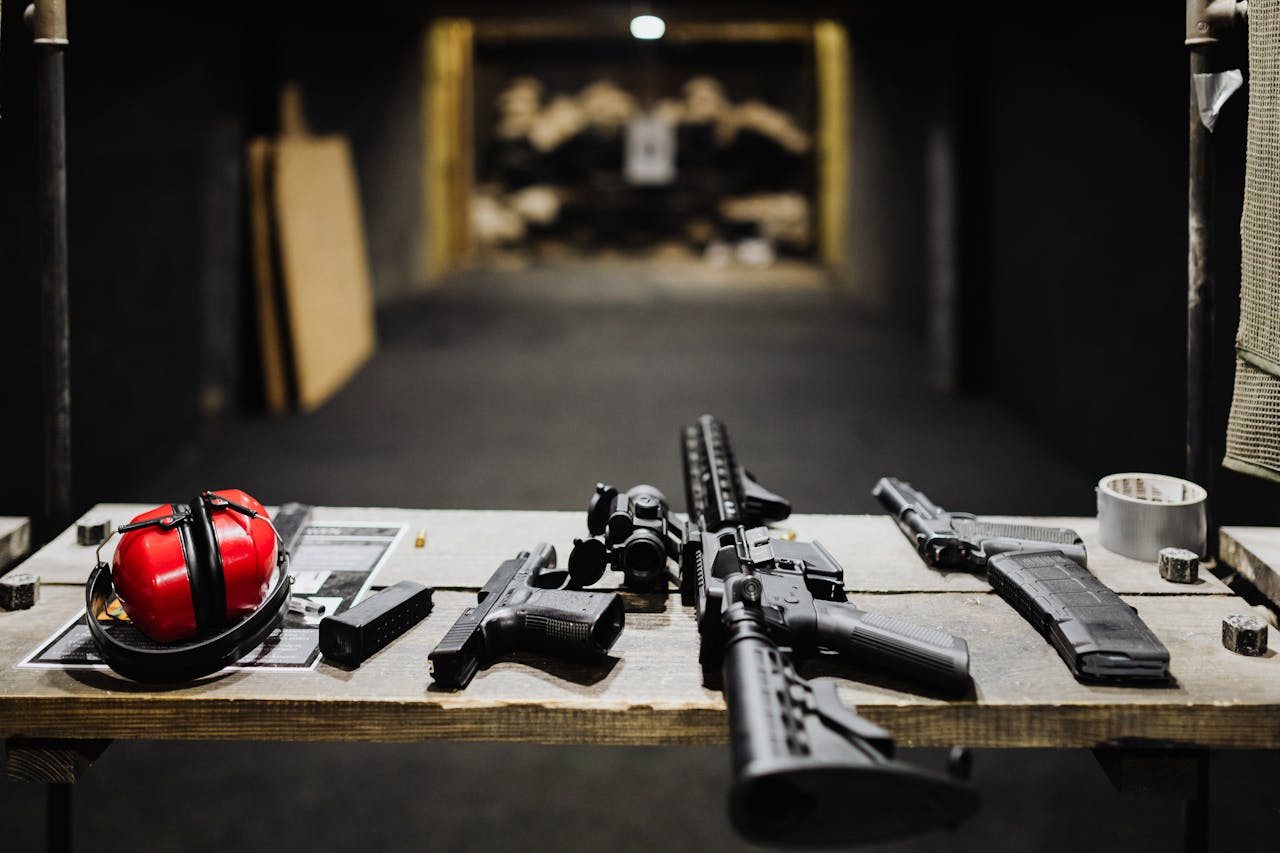How Shooting Guns Could Negatively Affect Your Health
Here in the South (well, heck, all across America), shooting guns is a big deal.
It’s something that millions and millions of Americans participate in, and shooting is a constitutionally protected right Americans enjoy.
Now, the point of this article isn’t to delve into pro-gun or anti-gun arguments.
Instead, it’s strictly an article for people who shoot, giving them the message that heading to the range has risks.
Specifically around the chemicals you encounter and may potentially absorb into your body.
I say that because I know tons of my readers are pro-gun, and plenty are anti-gun.
Each of us has a right to our opinion, and I want to acknowledge that we live in a country that allows freedom of speech and the right to bear arms.
As a physician, I’d be remiss not to help the patients I see who head to the gun range.
Now that I’ve cleared the air (which is a great idea if you shoot indoors), I will dive into the specifics of what shooting can do to you, healthwise. And no. I’m not referring to what happens when you accidentally shoot yourself 😉
How Shooting Can Negatively Impact Your Health
The first thing I want to preface is that shooting is inherently dangerous.
If you don’t take proper precautions, shooting a firearm can be one of the most dangerous things you ever do.
All across the United States, thousands of people injure or kill themselves while shooting a firearm.
However, in 99.9% of these instances, negligence or ignorance was the chief cause of the harm.
I won’t be covering negligence or ignorance in this article.
The other inherent danger with firearms relates specifically to the chemicals used in ammunition.
And how your exposure to them could impact you.
When it comes to shooting, think about this:
- the solvents used to clean your guns are toxic
- the bullets are toxic (most are made of lead
- the brass casings are toxic
- the smoke from firing your weapon is highly toxic
Whether you’re shooting indoors or outdoors, the risk of exposing yourself to these contaminants is high. Of course, the risk is higher when you’re inside because the fumes from shooting remain trapped in the building. Even the most advanced exhaust systems aren’t going to get the fumes out fast enough.
You run a smaller risk of exposure outdoors, but your clothes and the air will still be contaminated when at the range.
And let’s not forget that the toxins will get on your hands. Both when you’re shooting as well as when you’re reloading your firearms. This is why you need to be sensitive to what you’re doing and pay attention to what you touch and where you’re putting your hands.
To mitigate the dangers, do the following.
How to Stay Safe From Toxins When Shooting
Easily, one of the simplest and most effective ways to protect yourself is to wash your hands and wipe down your guns after you shoot.
Don’t eat or drink while shooting. And if you do…wash your hands.
Before you make it into your home, strip down in your garage or strip as much as possible before entering your home to minimize lead and other toxic contaminants polluting your home.
And then take a shower (you probably smell a little, anyway.)
Beyond that, I’d suggest going to an outdoor range when possible to have more physical space for the lead and other contaminants to be dispersed, diluted, and blown downwind.
Regarding ammo, I suggest opting for lead-free or jacketed bullets to minimize airborne lead exposure. This won’t entirely eliminate exposure to chemicals, but it’ll help minimize exposure to one of the worst offenders.
Safety Is Key
Shooting is fun, there’s little doubt.
And it serves a vital role in keeping us free.
Paying attention to small details like that will make it much more enjoyable and reduce the negative health impacts it could have on you and your loved ones.


